For both small properties and large acreages, Nigerian Dwarf goats can be a weed-munching match made in heaven. Nigerian Dwarf goats can be a great way to clear and control invasive blackberries and nibble on weeds all while providing aesthetic, entertainment, companionship, and even milk to farm spaces.
Nigerian Dwarf goats are, in my humble and fully biased opinion, the perfect breed choice for those looking for a few goats for their backyard or farm space. They are miniature goats – usually no more than about two feet high at the withers – and their small size has its advantages! Nigerian Dwarf goats are economical on feed, able to be kept in smaller spaces, and are a great size for around children. In fact, one of the key reasons we chose to raise Nigerian Dwarfs on our homestead was because we had young children and extended family members. To not have to be overly concerned with constant supervision if the kids are along for farm chores is a huge help!
A small group of colourful Nigerian Dwarfs dotting the landscape is a pleasant sight. They tend to be rather unpredictable in their litter colours and even a large litter of quadruplets or quintuplets can have goats of completely different colours and patterns. These rainbow litters make for fun surprises at kiddings and for beautifully varied herds.
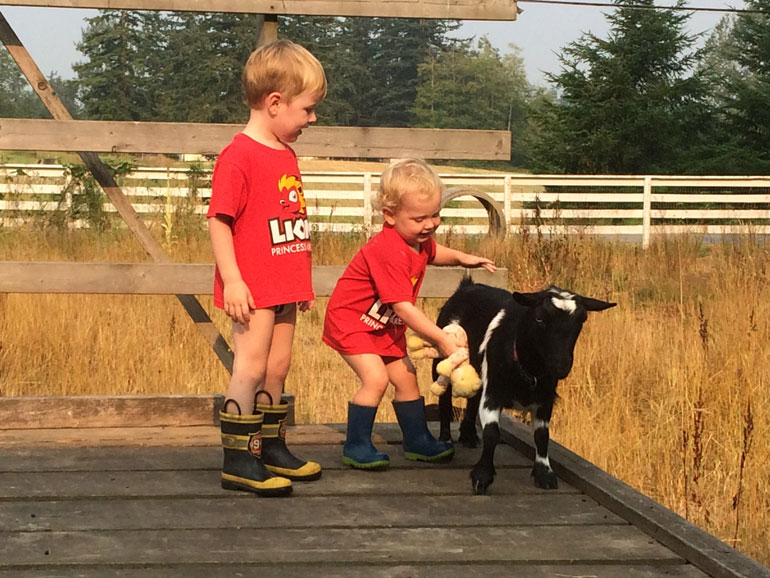
Add to that the fact that they are a Canadian Goat Society registered dairy breed (and the only miniature registered breed) so smallholders can also plan to have some home milk production. Not only can Nigerian Dwarf goats from good lines be excellent little milk producers, but their milk has higher butterfat than standard dairy goats. Once you’ve tasted that sweet creamy delicious milk, you’ll wonder where real goat’s milk has been your entire life!
If you aren’t looking for productive livestock; but would rather have two or three goats to nibble at the weeds and enrich your farm home, wether goats make wonderful pets. Wethers are neutered males who will not develop the randy smell, urine-drinking, and rutting behaviour of bucks. We have found Nigerian Dwarf goats in general to be clever, friendly, and curious; each with their own quirks and personalities. You’ll greatly enjoy watching their lively antics as they climb and jump around on rocks, playgrounds, or anything else you provide them with. And once they figure out that you are the source of treats and scratches, you’ll likely discover that if you aren’t careful, your goat’s favourite spot to sit will be in your lap!
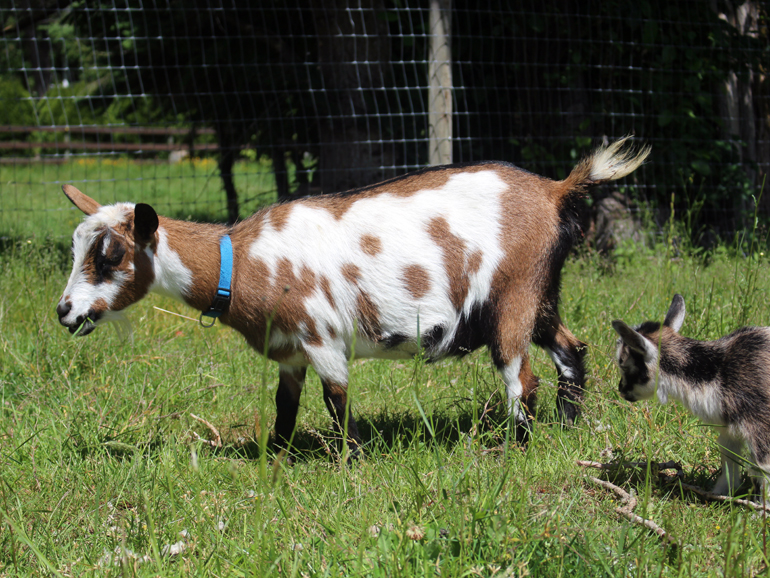
So to summarize (in no particular order), the reasons we think Nigerian Dwarf goats make perfect miniature dairy livestock are:
- Small size.
- A wide variety of colour and patterns.
- Milk!
- Weed-control.
- Entertainment.
- Companionship.
What Care Do Goats Require?
Goats are ruminants, so aside from pasture or bush to browse, the major component of their diet should be hay. They require fresh clean water, a good quality hay, a 2:1 dairy mineral for goats or cows, and loose salt. We premix our salt and mineral to control the intake of the mineral; however many goat keepers swear by providing the mineral and salt separately. Annual vaccination for Clostridium C & D and tetanus is a good idea. Goats require solid fencing – they are masters at escaping so make sure you have left no weak areas in your fencing as your goats will find them! Finally, goats are highly intelligent, inquisitive, and social creatures and require at least one same-species companion.

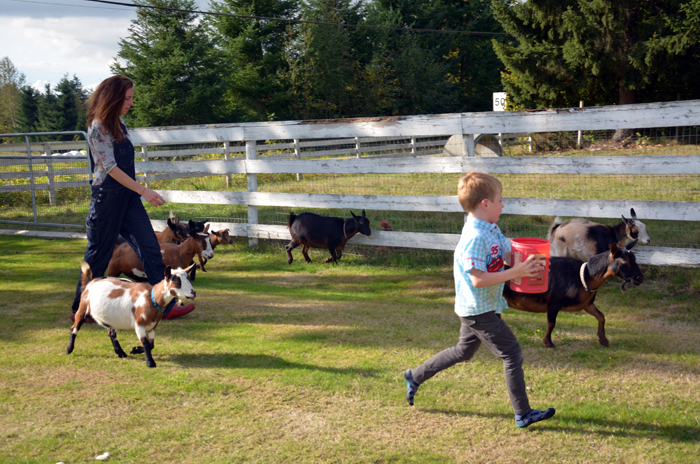
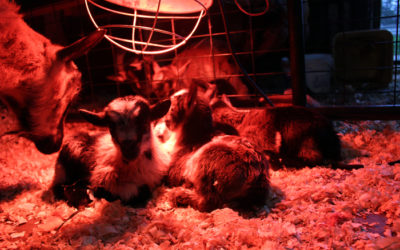
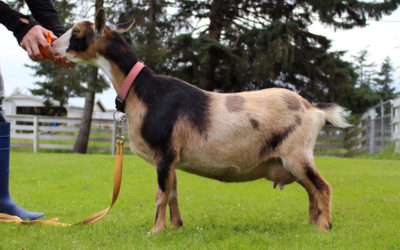
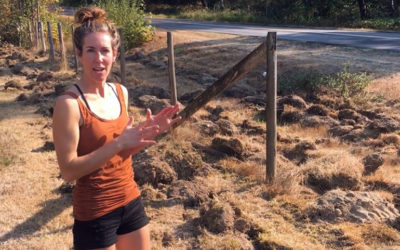
0 Comments